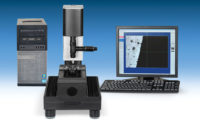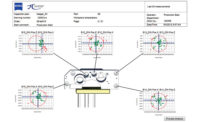Ford, which lost $5.5 billion in 2001, has embarked on a five-year restructuring plan that includes closing several assembly plants and revamping others. The company also plans to reduce concept to roll-out time so that it can build cars that appeal to consumers' taste.
To do so, the company must become more efficient and able to "turn on a dime" to appeal to today's Web-influenced, I-want-it-now consumer, according to Anne Stevens, vice president of North American vehicle operations at Ford. Stevens, who studied with Deming in the 1980s, oversees 21 Ford assembly plants in Canada, Mexico and the United States. She spoke at the Assembly Technology Expo in Rosemont, IL, on Sept. 25.
"There's a transformation taking place at Ford that is the exact opposite of everything that we've grown to believe was essential to large-scale mass production," says Stevens. "It represents the next manufacturing age, which has been called the post-industrial age. It will usher in an entirely new economic era; one where individuals live in a world of their own design."
This goes against the company's production history that stretches back to Henry Ford. Ford standardized parts and processes, achieving vertical supplier integration and just-in-time delivery, and eased the burden on workers with the moving assembly line. Henry Ford boasted that he made assembly so simple that he could teach any factory worker his job in just five minutes.
"Ford did not call his approach lean manufacturing, but he could have," says Stevens. "When General Motors came up with a new slogan, 'a car for every person and purpose,' Ford lost first place and learned an invaluable lesson about choice."
Flexible manufacturing, or mass customization as Stevens called it, is inevitable if manufacturers are to keep up with consumer's ever-changing demands. Absolutely nothing is foreseeable, she says, and so production and plants must be able to change with the times.
Gone are the days of large lots of products, Stevens says Ford is looking to be able to cost-effectively build products in batches with volumes as little as one.
This includes new flexible manufacturing plants that are modularized and populated with computer numeric controlled machinery that can quickly be reprogrammed to produce new parts. By mid-decade, half of all the Ford body shops will be flexible. They will be able to run four significantly different models, and will have the capability to integrate other unique platforms. This will cut waste and improve quality, Steven says.
Manufacturing systems that tie in the plant, process and people can attain new levels of quality, cutting waste, improving quality and efficiency. Ford did this in part through virtual manufacturing at the company's revamped Dearborn, MI, plant. Everything was precreated through virtual software simulation. "We created a cyber world that let us look at alternative processes," Stevens says.
Ford is in the process of revitalizing the River Rouge manufacturing complex in Dearborn. Ford is investing $2 billion in the new Rouge Center. A state-of-the-art production facility will open on the site next year and produce F-150 and Ranger pickups in early 2004.
Ultimately, the new 1.3-million-square-foot flexible assembly plant will have the capability to interchange three vehicle platforms, producing nine different models in the same facility. "The plant will reduce inventory space by 50% while significantly improving flow throughout the system," says Stevens. "You used to see huge bundles of inventory. You don't see that anymore."


